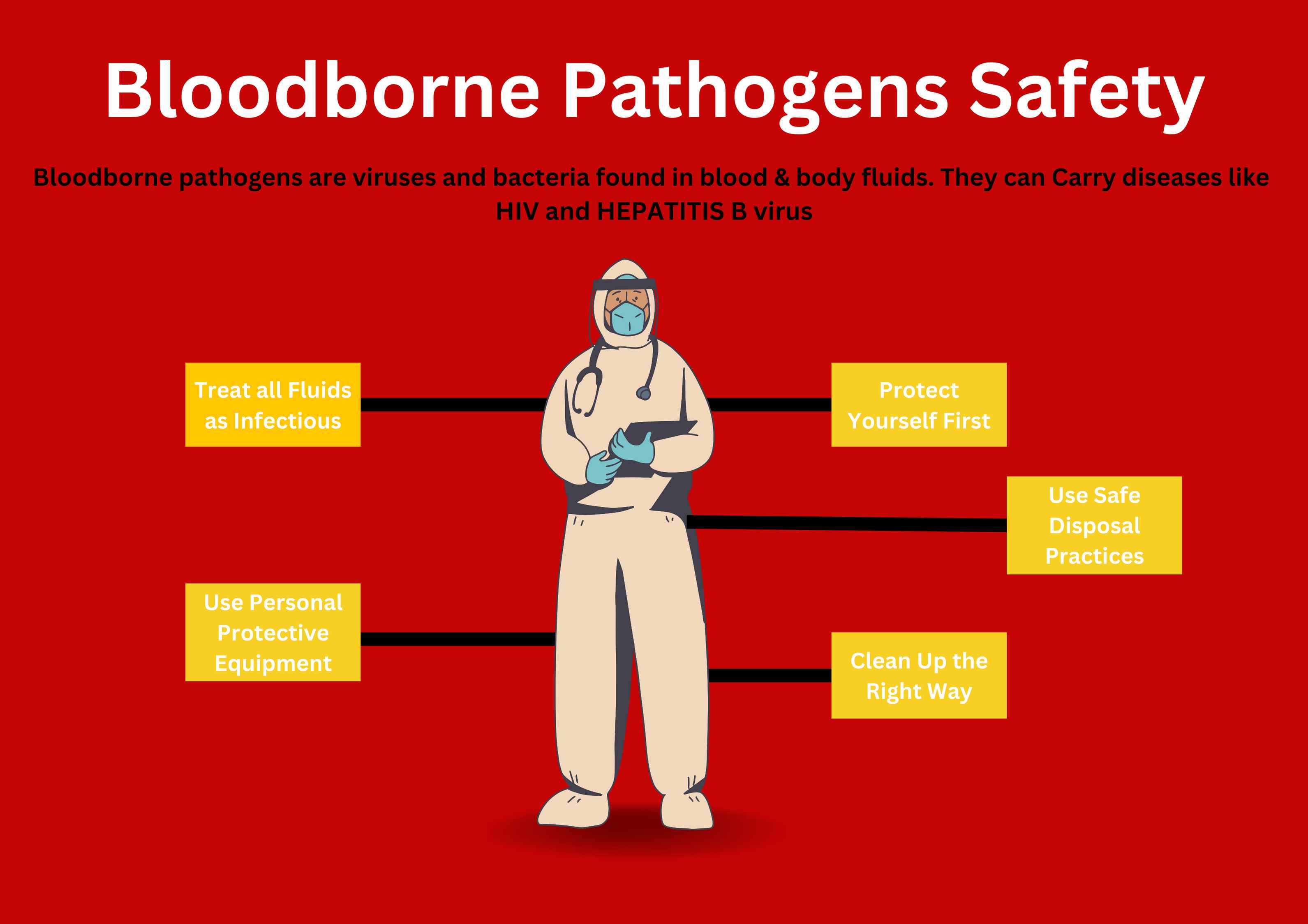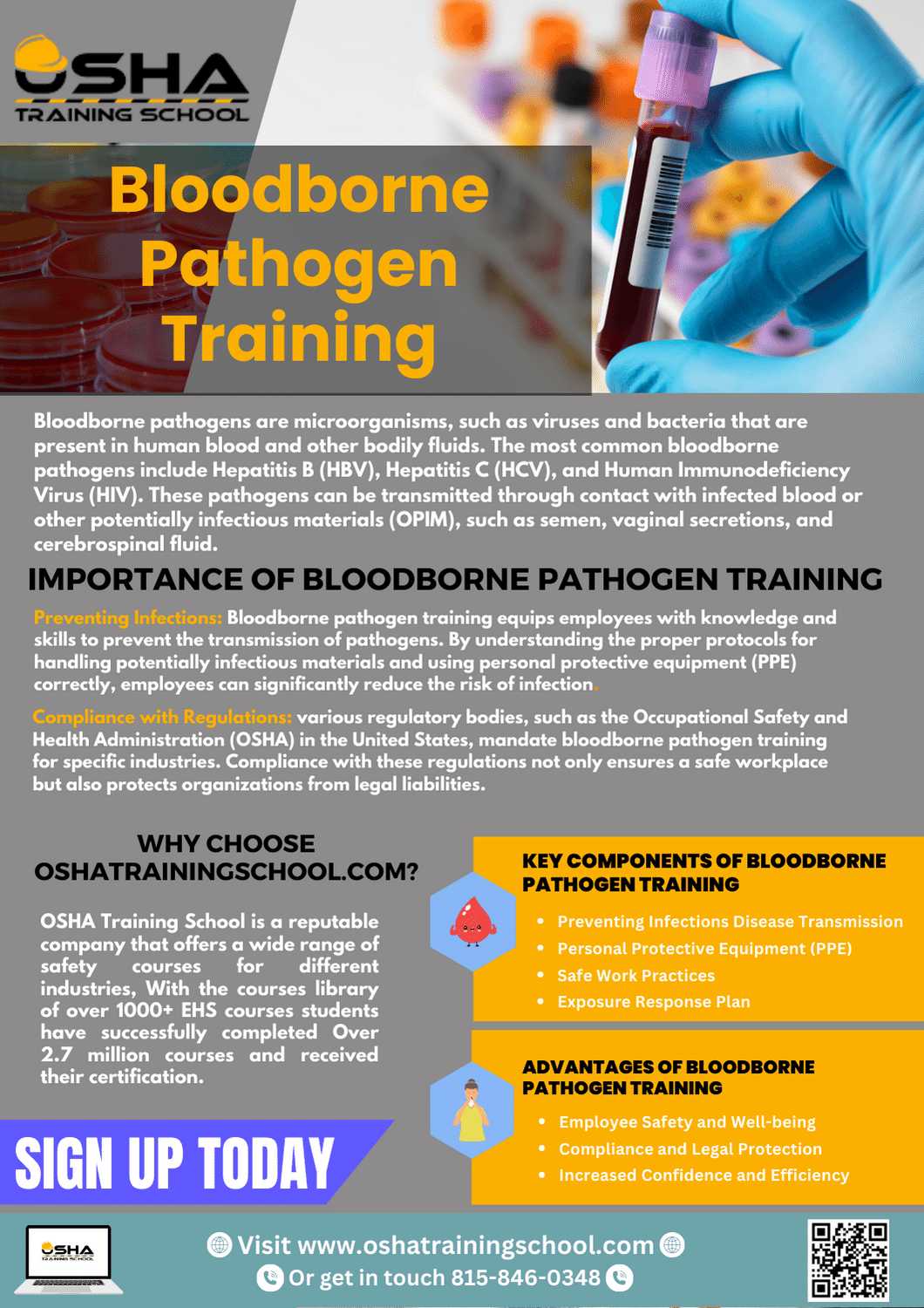
Kansas OSHA Training Requirements | 10 and 30 Hour Courses
For those working in the Kansas construction, manufacturing, or oil and gas industry, the question...


In today's world, maintaining a safe and healthy work environment is paramount. One critical aspect of workplace safety involves understanding and managing the risks associated with bloodborne pathogens. These pathogens can be present in various industries, including healthcare, laboratories, emergency services, and even some office settings. To mitigate the potential dangers and ensure the well-being of employees, bloodborne pathogen safety training plays a crucial role. In this blog post, we will explore the importance of bloodborne pathogen training, its key components, and the benefits it brings to both employers and employees.
Bloodborne pathogens are microorganisms, such as viruses and bacteria that are present in human blood and other bodily fluids. The most common bloodborne pathogens include Hepatitis B (HBV), Hepatitis C (HCV), and Human Immunodeficiency Virus (HIV). These pathogens can be transmitted through contact with infected blood or other potentially infectious materials (OPIM), such as semen, vaginal secretions, and cerebrospinal fluid.

Bloodborne pathogen training equips employees with knowledge and skills to prevent the transmission of pathogens. By understanding the proper protocols for handling potentially infectious materials and using personal protective equipment (PPE) correctly, employees can significantly reduce the risk of infection.
Various regulatory bodies, such as the Occupational Safety and Health Administration (OSHA) in the United States, mandate bloodborne pathogen training for specific industries. Compliance with these regulations not only ensures a safe workplace but also protects organizations from legal liabilities.
Training should cover the modes of transmission for bloodborne pathogens. This includes direct contact with infected blood or OPIM, exposure to contaminated objects, and exposure to droplets or aerosols containing the pathogens.
Employees should be educated on the appropriate use and disposal of PPE, such as gloves, masks, goggles, and gowns. Training should emphasize the importance of wearing PPE when handling potentially infectious materials and the correct procedures for removing and disposing of it safely.
Employees should be trained on adopting safe work practices, such as hand hygiene, proper sharps disposal, and disinfection procedures. This includes understanding the correct techniques for handwashing and using hand sanitizers effectively.
An effective training program should outline the steps to be taken in the event of exposure to blood or other potentially infectious materials. This includes reporting the incident, seeking immediate medical attention, and following the organization's post-exposure protocols..
By providing comprehensive training, organizations prioritize the safety and well-being of their employees. This leads to a healthier work environment and reduces the risk of infections and associated complications.
Meeting the regulatory requirements through proper training ensures that organizations avoid penalties, fines, and legal issues. It demonstrates a commitment to maintaining a safe workplace and protects against potential litigation.
Employees who receive adequate training feel more confident in handling potentially infectious situations. This confidence translates into better job performance, increased efficiency, and a sense of empowerment within the workforce.

Bloodborne pathogen training is a crucial investment for any organization concerned with employee safety and overall well-being. By understanding the risks associated with bloodborne pathogens and implementing proper training programs, organizations can effectively prevent infections, ensure compliance with regulations, and create a healthier and more productive work environment. Remember, knowledge is power when it comes to protecting yourself and others from bloodborne pathogens.


For those working in the Kansas construction, manufacturing, or oil and gas industry, the question...

Suspended scaffolds are temporary work platforms that hang from secure anchorage points and are...

Supported scaffolds are temporary elevated platforms supported by structural members and used across construction and industrial...

Renewing a Site Safety Manager (SSM) certification in New York City is a regulatory requirement that keeps safety professionals current...

Many jobs in Colorado expose workers to fall hazards, electrical risks, machinery hazards, and...

Many Hispanic and Latino workers in the U.S. are employed in high-risk industries such as construction...